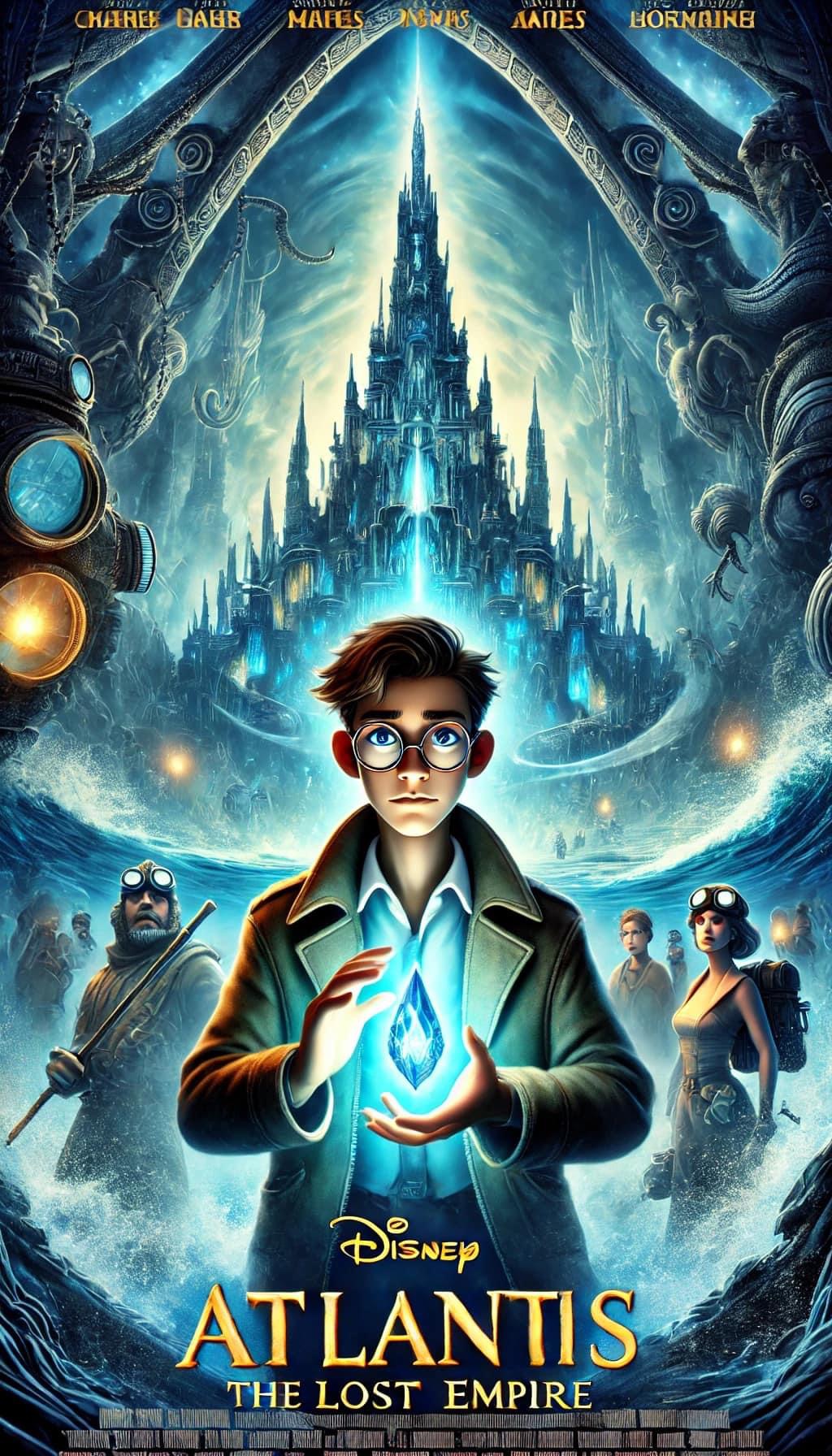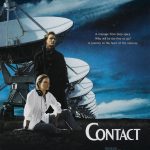Atlantis The Lost Empire (2001)

Review of Atlantis: The Lost Empire (2001)
Atlantis: The Lost Empire, released in 2001, is a departure from the traditional Disney formula that had dominated the 90s. Directed by Gary Trousdale and Kirk Wise, this animated feature blends science fiction, action, and adventure, marking a significant shift from the studio’s typical fairy tale fare. Instead of musicals or whimsical princess stories, Atlantis takes audiences on a high-stakes treasure hunt to uncover the secrets of a lost civilization, the mythical Atlantis.
Suggested videos for you:
Plot Overview
The film follows Milo Thatch (voiced by Michael J. Fox), a young linguist and aspiring archaeologist who dreams of discovering the lost city of Atlantis. His opportunity arises when a wealthy businessman, Preston B. Whitmore (John Mahoney), funds an expedition to find the ancient city. Milo, along with a diverse crew of adventurers—including the no-nonsense leader Commander Rourke (James Garner), mechanic Vinny (Don Novello), and the feisty explosives expert Helga (Jacqueline Obradors)—embarks on a perilous journey deep beneath the ocean. Once they reach Atlantis, they find not just the remnants of a lost society but also a powerful crystal that holds the key to Atlantis’s advanced technology and its eventual downfall.
As the plot unfolds, the story reveals that the crew’s motivations may not be as noble as they first appear, and Milo uncovers the deeper, darker secrets of Atlantis’s mysterious fate. The city’s survival hinges on the power of the Heart of Atlantis—a glowing crystal capable of immense energy, which becomes a central plot device as both the crew and the Atlanteans vie for control.
Themes and Storytelling
Atlantis is notable for its more mature, adventurous tone compared to the more family-friendly Disney classics. The film explores themes of discovery, greed, betrayal, and the clash between ancient wisdom and modern ambition. The Atlanteans, a technologically advanced society, represent both the potential of human achievement and the dangers of unchecked power. Milo’s journey of self-discovery, from a naive dreamer to a determined and courageous hero, mirrors the larger narrative of mankind’s potential to either embrace or destroy what it doesn’t fully understand.
The film also touches on the theme of community, as the Atlanteans, though initially isolated, must learn to trust Milo and his team to survive. The interaction between the expedition crew and the Atlanteans highlights cultural exchange and the challenge of bridging gaps between different worlds, whether through language, history, or values.
While the plot is engaging, Atlantis sometimes feels rushed in its pacing, particularly in the middle section, where the action-heavy sequences overshadow character development. However, the film excels in world-building, offering a richly detailed depiction of Atlantis as both a lush, vibrant civilization and a ruined, forgotten city beneath the sea.
Animation and Visuals
One of the most striking aspects of Atlantis: The Lost Empire is its visual style. The film adopts a more streamlined, artistic approach, with a look that is distinct from other Disney movies. The character designs, influenced by the work of comic book artist Mike Mignola, are angular and sharp, giving the film a darker, more stylized appearance. The color palette is dominated by deep blues and greens, evoking the underwater setting, with bursts of neon from the Heart of Atlantis and its technological marvels.
The animation is fluid and dynamic, particularly in the action scenes, which include high-speed chases through the ocean and dramatic underwater battles. The underwater city itself is a visual marvel—massive, ancient, and beautiful, with intricate architecture and strange, otherworldly technology. These visuals, combined with a sweeping musical score by James Newton Howard, create an immersive atmosphere that draws viewers into the world of Atlantis.
Characters and Voice Acting
The characters in Atlantis are a diverse group, each bringing their own unique quirks and traits to the story. Milo, the protagonist, is a likable but somewhat underdeveloped character. His intellectual prowess and sense of wonder are endearing, but his arc, while satisfying, could have been explored in more depth. The supporting characters, especially the rough-and-tumble members of the crew, offer moments of levity and personality, but many are stereotypical and lack the richness of Disney’s more memorable characters.
The standout performance, however, is from Jim Varney as the grizzled mechanic, Cookie. Varney, in one of his final roles before his passing, brings warmth and humor to the character, making him one of the film’s most memorable. The voice cast also includes such talents as Michael J. Fox, who gives Milo an earnest and youthful charm, and James Garner, whose portrayal of Commander Rourke adds layers of complexity to the character.
Critical Reception
Atlantis: The Lost Empire was met with a mixed reception from critics. Some praised its adventurous spirit, visuals, and departure from traditional Disney tropes, while others felt the film lacked the emotional depth and charm of earlier Disney classics. The film performed modestly at the box office, which many attribute to its departure from the more familiar musical, family-friendly Disney formula.
Despite this, Atlantis has garnered a loyal fanbase over time, with many appreciating its unique style, storytelling, and the bold risks it took in contrast to the more formulaic Disney fare. The film’s darker tone and more mature themes resonate particularly with older audiences who appreciate its depth and complexity.
Conclusion
Atlantis: The Lost Empire is an ambitious and visually stunning film that blends action, adventure, and science fiction in a way that Disney had not attempted before. While it doesn’t quite reach the heights of Disney’s most beloved animated classics, it remains a bold, intriguing, and underappreciated gem in the studio’s library. Its world-building, mature themes, and visual style make it a standout for those looking for something different from Disney’s usual fare, even if it doesn’t entirely achieve the emotional resonance that the studio is known for.
In the end, Atlantis stands as a testament to Disney’s willingness to experiment with new genres and ideas, and though it may not be a beloved classic, it’s certainly a film worth revisiting for those seeking an adventurous, visually captivating story with a deeper layer of meaning.











